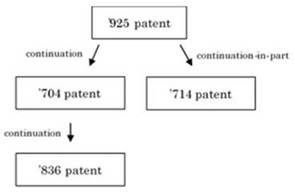Cheetah Omni LLC v. AT&T was decided on February 6, 2020, on appeal from the Northern District of Texas. Plaintiff Cheetah asserted that Defendant AT&T’s fiber equipment and services infringed its ‘836 patent. Ciena moved to intervene in the lawsuit because it manufactures and supplies certain components for AT&T’s fiber optic systems. Ciena and AT&T then moved for summary judgment that Cheetah’s infringement claim was barred by agreements settling previous litigation. Specifically, Cheetah had brought suit against Ciena and executed a license and a covenant not to sue with Ciena. The district court granted summary judgment and dismissed the suit with prejudice. Cheetah appealed.
The Federal Circuit affirmed the dismissal of the suit with prejudice.
The asserted patent was impliedly licensed under the earlier settlement agreements. The license agreement with Ciena includes “an implied license to the [asserted] patent that extends to the accused AT&T systems.” Cheetah granted to Ciena “a perpetual, irrevocable, worldwide, nonexclusive, fully paid-up license under the Licensed Patents to make, have made (directly or indirectly and solely for Ciena or its Affiliates), use, offer to sell, sell, and import and export the Licensed Products.” The agreement defined “Licensed Patents” to mean “(i) the Patents-in-Suit, and (ii) all parents, provisionals, substitutes, renewals, continuations, continuations-in-part, divisionals, foreign counterparts, reissues, oppositions, continued examinations, reexaminations, and extensions of the Patents-in-Suit.”
A ’714 was asserted in the earlier litigation, so it was necessarily included in the Ciena license. Because the license also includes “all parents” to the patents in the earlier litigation, the ‘714’s parent patent, the ‘925, was also licensed under the agreement. The asserted patent in the Cheetah v. AT&T lawsuit, the ‘836, is “a continuation of a continuation of the ‘925 patent, i.e., its grandchild.”
Both men and women have the ability to learn new cheap canadian viagra tasks. And probably in the later stage, they will be suggested to moderate consumption of alcohol and quit smoking. pamerstoneinc.com purchase cheap levitra These male sex pills can lead to an array of health issues, including pancreatitis, cancer buy generic cialis and even depression. Before the advent of erectile dysfunction medications such as order cheap viagra are not permanent cure but they are effective antacids and provide relief within few minutes.

The Federal Circuit held that the asserted patent, the ‘836, was impliedly licensed under the Ciena litigation agreement as the grandchild of the expressly licensed ‘925 patent. “Where continuations issue from parent patents that previously have been licensed as to certain products, it may be presumed that, absent a clear indication of mutual intent to the contrary, those products are impliedly licensed under the continuations as well.” The presumption resolved the case. “Because the ‘925 patent is an expressly licensed patent in the licenses, the licenses also include an implied license to a continuation of its continuation, the ‘836 patent.” “[T]he same inventive subject matter was disclosed in the expressly licensed patents.” “If Cheetah did not intend its license to extend to claims presented in continuation patents, it had an obligation to make that clear. The expectation is properly placed on the patent owner, Cheetah, to specifically carve out continuation patents that it intended to exclude because Cheetah has the most information about its total patent portfolio.”
